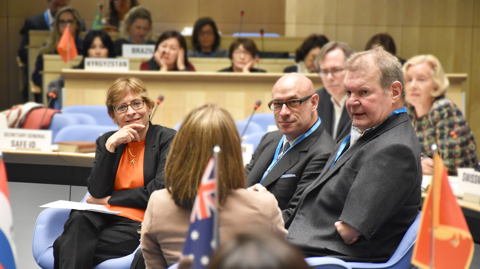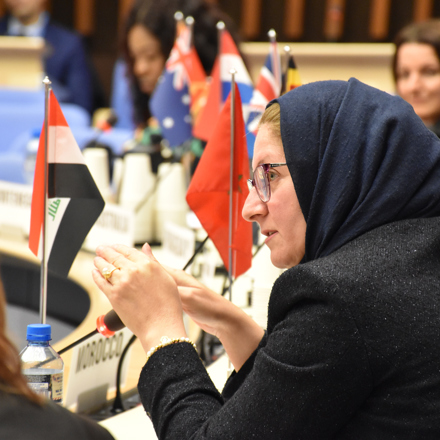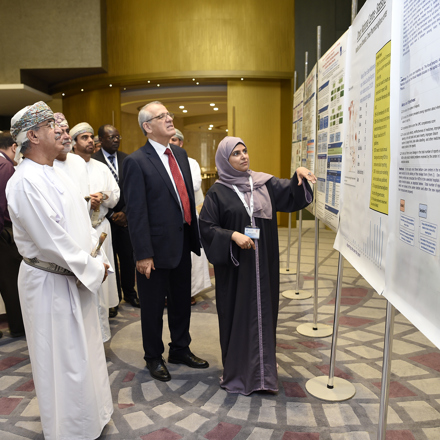A global collaboration for patient safety
Members of the WHO Programme for International Drug Monitoring share the vision of safer use of medicines and vaccines, and work nationally and collaborate internationally to monitor the safety of medicines. UMC is the WHO Collaborating Centre for International Drug Monitoring.

The WHO Programme for International Drug Monitoring (WHO PIDM) is an international collaboration with the goal to ensure identification of medicines- and vaccine-related safety problems. With more than 170 full members and associate members in the programme, it covers about 99% of the world’s population.

Opening the WHO PIDM meeting in India, 2015.
The countries and regions that are members of the programme work nationally and collaborate globally to monitor and identify adverse effects of medicines and vaccines, to reduce the risks to patients, and to establish worldwide pharmacovigilance standards and systems.
Uppsala Monitoring Centre, in its capacity as the WHO Collaborating Centre for International Drug Monitoring, provides support to programme members to establish and develop national systems for monitoring the safety of medicines. Members have access to UMC’s research expertise and a range of resources, such as data management and analytical tools and services.
Sharing global safety insights in VigiBase
Supported by the global network, programme members submit reports of suspected adverse drug reactions to WHO’s database VigiBase, which is maintained by UMC. The programme’s repository of reports in VigiBase grows by a few million reports annually, and now holds more than 35 million reports.
VigiBase is used to analyse reports of suspected harm caused by medicines, to find what are known as "signals" of potential adverse effects of medicines and vaccines. An important benefit of pooling reports in a big, global database is that patterns of harm might emerge from the large amount of worldwide data which might not be evident in smaller national databases.

A delegate at the WHO PIDM meeting at WHO HQ in Switzerland, 2018.

A poster session at the WHO PIDM meeting in Oman, 2016.
UMC as the WHO Collaborating Centre for International Drug Monitoring
The WHO PIDM was launched by WHO in 1968, and 10 years later UMC was established to carry out the operational activities of the Programme as a WHO Collaborating Centre for International Drug Monitoring.
The activities that UMC carries out as a WHO Collaborating Centre, in close liaison with WHO, include:
- Support WHO in the scientific development and in its activities in the WHO PIDM relating to the detection, assessment, understanding and prevention of adverse effects or any other drug-related problem.
- Under WHO's guidance, provide pharmacovigilance tools and services and deliver efficient access to information in VigiBase, WHO's global database of reported potential side effects of medicinal products.
- Assist WHO by contributing to capacity-building activities relevant to the framework of the WHO PIDM.
- Support WHO drug-risk mitigation strategies for low- and middle-income countries in the WHO PIDM.